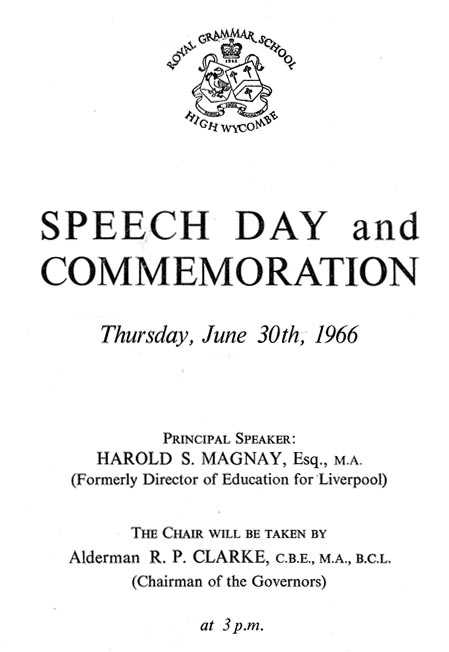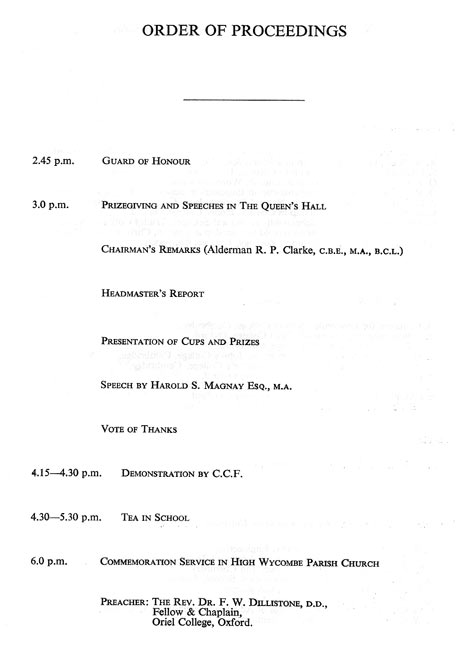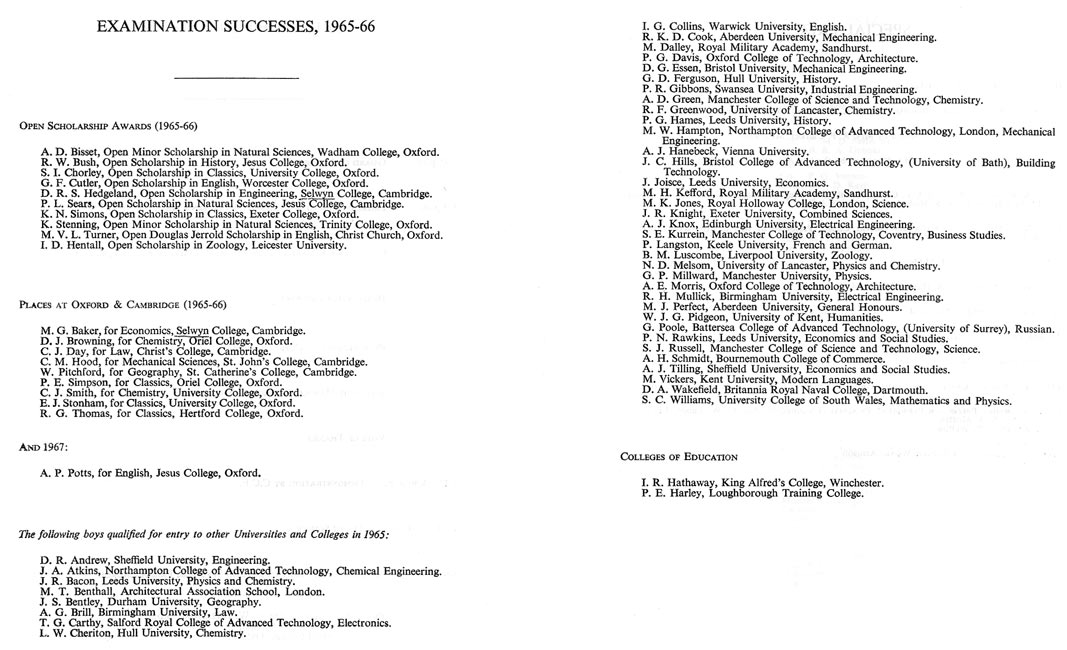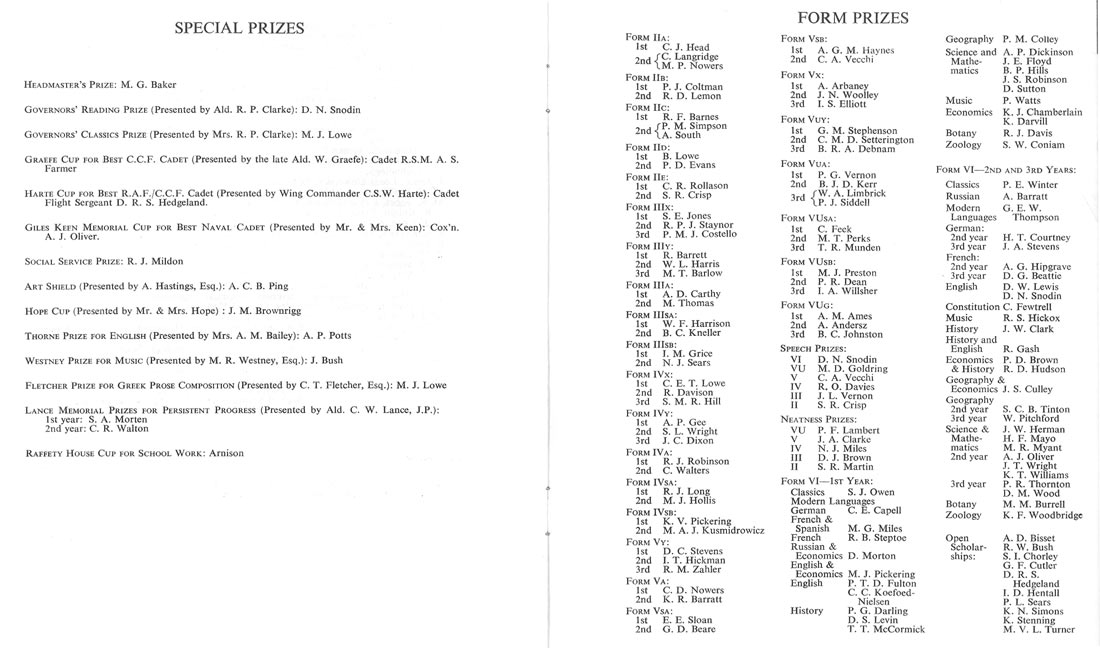
ROYAL GRAMMAR SCHOOL, HIGH WYCOMBE
SPEECH DAY PROGRAMME FOR 1966
(Various torn/scribbled-on pages have had to be digitally repaired)
Other Speech Day Programmes
SPEECH DAY, 1966Speech Day was held on Thursday, June 30th, when the visiting speaker was Mr. H. S. Magnay, who was formerly the Chief Education Officer for Liverpool. The Chairman of the Governors, Alderman R. P. C1arke, said how delighted he was to preside on this the occasion of the Headmaster’s first speech day at the Royal Grammar School. The Headmaster in presenting his report said how pleased he was to see the representatives of other secondary and primary schools. This school was always ready to welcome boys from other schools who were able to profit from the kind of education given here. He referred to the wide range of activities and successes which bore witness to the fact that education was concerned with more than academic results: though of these, too, we could well be proud. They included ten Open Awards at Universities, nine of them at Oxford and Cambridge. In view of the current debate on secondary school reorganisation the Headmaster said; “I am no great admirer of the comprehensive idea, as a recipe for universal application. I do not conceal my unrepentant belief in the virtues of selective grammar schools, as they have been developing in recent years. I am convinced that the defects of the selective process have been vastly exaggerated: many of us on both sides of this great divide believe that the present system still works well, and that most of its major snags could be smoothed out with goodwill and common sense. “Smallish comprehensive schools of 800 pupils such as are envisaged in the Buckinghamshire proposals cannot produce more than quite small sixth forms, of perhaps 50 to 70. Yet one of the most remarkable and encouraging developments of the post-war grammar school has been the emergence of large, strong Sixth forms, such as ours, which was 340 strong last September, highly organised educational instruments, based on carefully gathered teams of highly qualified staff concentrated on able pupils. Sixth forms like these have made possible the kind of results I mentioned earlier on ... In this vital matter the Buckinghamshire proposals would inevitably dissipate what has so painstakingly been built up over many years. “I should hate it to be thought that, because we believe in the School we serve, we are unthinking last-ditchers, resisting all change at any price. We are as much alive to new thinking as anyone-and are in process of doing a good deal of it ourselves. But change for its own sake is frivolous folly. We will welcome any change that can be shown to bring real advance and improvements” . After the presentation of the prizes Mr. H. S. Magnay entertained the audience with what must have been the liveliest speech-day address for many years. Mr. Magnay who had recently carried out a survey of educational systems in many parts of the world said that he did not think that a comprehensive system was the best. He wished with all his heart that the choice facing the country educationally was not a political choice-which he was sure it was. At the Commemoration Service held in the Parish Church in the evening the preacher was the Rev. Dr. F. W. Dillistone, D.D., Fellow and Chaplain of Oriel College, Oxford, and formerly Dean of Liverpool; thus completing a trio from Merseyside. |



